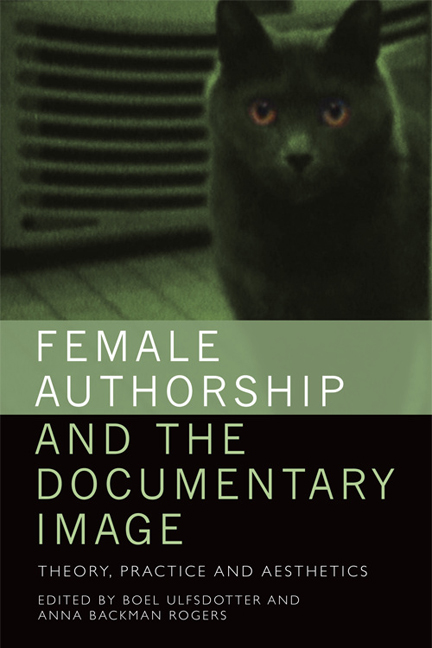Book contents
- Frontmatter
- Contents
- List of Illustrations
- Notes on the Contributors
- Foreword
- Introduction
- PART ONE DOCUMENTARY PRACTICES
- PART TWO DOCUMENTARY THEORIES
- PART THREE FEMALE AUTHORSHIP AND GLOBAL IDENTITIES
- ‘Being a Woman Documentary Maker in Taiwan’ – An interview with Singing Chen and Wuna Wu
- Select Bibliography
- Index
2 - New Day Films: Collective Aesthetics and the Collection
Published online by Cambridge University Press: 05 May 2021
- Frontmatter
- Contents
- List of Illustrations
- Notes on the Contributors
- Foreword
- Introduction
- PART ONE DOCUMENTARY PRACTICES
- PART TWO DOCUMENTARY THEORIES
- PART THREE FEMALE AUTHORSHIP AND GLOBAL IDENTITIES
- ‘Being a Woman Documentary Maker in Taiwan’ – An interview with Singing Chen and Wuna Wu
- Select Bibliography
- Index
Summary
New Day Films was founded in 1972 – on the cusp of sweeping changes in documentary and feminist filmmaking practice – by four documentarists who were unable to gain distribution in the bottleneck of the New York nonfiction filmmaking scene (Figure 1). Despite these challenges, their films about the everyday texture of women's lives were in demand with audiences as the women's movement grew across the country. Today, New Day is one of the most financially stable nontheatrical distribution collectives in North America, boasting more than 165 members and $1m in yearly revenues. Films distributed by the collective have been screened, broadcast and awarded around the world, studied in media journals, discussed at organising events, showcased in museums, and collected by libraries. New Day's collective (and its collection) provide compelling objects of study for the history of gender and documentary authorship.
In interviews spanning thirty-five years, from 1978 to 2015, founders (Figure 2) and newer members alike attribute New Day's success not only to its identity as a collective but also to two specific forms this category implies. First, New Day is a vehicle for self-distribution, wherein each member is responsible for the reproduction, audience engagement strategies, and direct marketing of their own film. Yet each member is also a part owner, and both individual profits and the cooperative's overhead are calculated through a share ladder – a transparent division of New Day's total profits – voted on by the members every year. Second, while New Day's institutional identity and practices are derived from a model of participatory democracy and the pluralism it values, one of the collective's most prominent features is its highly unified presentation of its content – its films – on the Web, in promotional materials, and in other venues. New Day's titles, honoured with three retrospectives at the Museum of Modern Art in New York and recently acquired by Duke University's Archive of Documentary Arts, are marketed and often consumed as a historically significant, curated collection with a distinct house style. The complex play between individualised activism and collectivity threads through New Day's identity as both a dominant US independent educational film distributor and one of the few surviving feminist documentary collectives so important to the early 1970s.
- Type
- Chapter
- Information
- Female Authorship and the Documentary ImageTheory, Practice and Aesthetics, pp. 22 - 39Publisher: Edinburgh University PressPrint publication year: 2018



